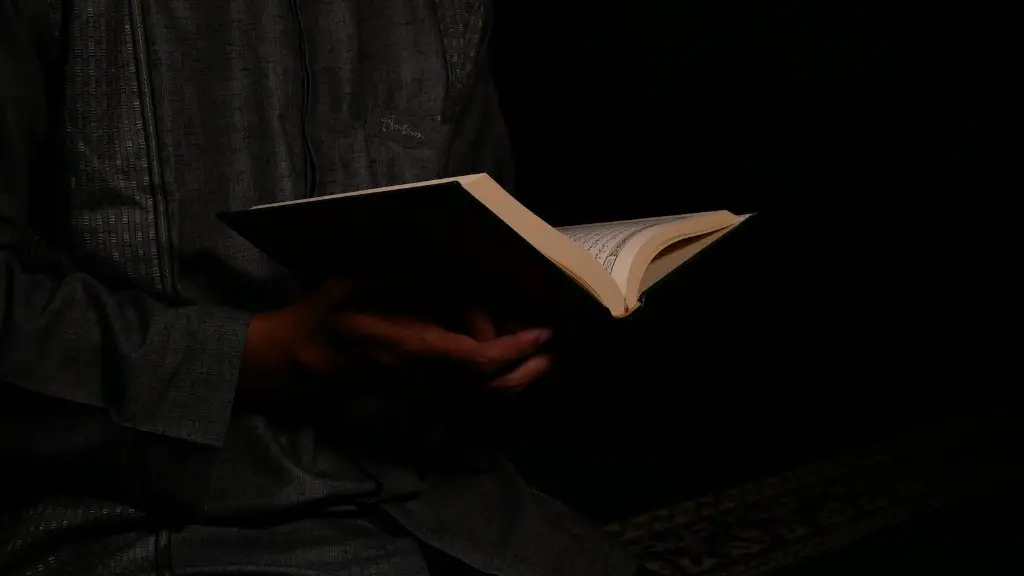Buddhism is a religion founded by Siddhartha Gautama, also known as the Buddha, in the 4th or 5th century BCE. The Buddha was born into a wealthy family but decided to leave his life of luxury to search for a way to end suffering. After years of study and meditation, he finally achieved enlightenment and began teaching his followers what he had learned.
The core beliefs of Buddhism are contained in the Four Noble Truths: that suffering is inherent in life, that the cause of suffering is desire, that suffering can be ended by eliminating desire, and that this can be accomplished by following the Eightfold Path. This path includesRight Understanding, Right Thought,Right Speech, Right Action, Right Livelihood, Right Effort, Right Mindfulness, and Right Concentration.
There is no self or soul; suffering is caused by attachment and desire; suffering can be ended by following the Eightfold Path.
What are the 3 main beliefs of Buddhism?
Buddhism is a religion that is based on the teachings of Siddhartha Gautama. The main principles of this belief system are karma, rebirth, and impermanence. Buddhists believe that karma is the result of a person’s actions and determines their future. rebirth is the belief that after a person dies, they are reborn into another form. impermanence is the belief that everything is constantly changing and nothing is permanent.
The Five Precepts are guidelines for living a moral and ethical life. They are: refrain from taking life, refrain from taking what is not given, refrain from the misuse of the senses, refrain from wrong speech, and refrain from intoxicants that cloud the mind.
Do Buddhist believe in God or Gods
The Buddhist teachings on devas and other deities are interesting in that they state that these beings are not eternal or creators, but they can live very long lives. This is an important teaching in the Buddhist doctrine of saṃsāra, or cyclical rebirth, as it helps to explain how beings can be reborn into different states. It is also important to note that the Buddhist teachings on these divine beings are not meant to be taken literally, but are instead meant to be understood as symbolic of different aspects of the human condition.
There are many differences between Buddhism and Christianity, but one of the most significant is that Christianity is based on monotheism, while Buddhism is generally non-theistic. This means that Christians believe in one God who created the world and provides divine values, while Buddhists do not believe in a creator God. This difference can lead to different views on things like morality, the afterlife, and the meaning of life.
What god do Buddhist believe in?
Buddhists do not believe in any kind of deity or god, although there are supernatural figures who can help or hinder people on the path towards enlightenment. The most important thing for Buddhists is to achieve Nirvana, which is a state of perfect peace and bliss. Buddhists believe that everyone has the potential to achieve Nirvana, and that the path to Nirvana is through the practice of meditation and mindfulness.
Buddhism is a religion and philosophy founded by Siddhartha Gautama, also known as the Buddha, more than 2,500 years ago in India. With about 470 million followers, Buddhism is considered one of the major world religions. The Buddha taught that the way to end suffering is to live a life of morality, meditation, and wisdom.
What is forbidden in Buddhism?
As a Buddhist, I take the precepts very seriously as they are commitments I have made to myself in order to develop my mind and character on the path to enlightenment. I am committed to abstaining from killing living beings, stealing, sexual misconduct, lying and intoxication. I believe that by adhering to these precepts, I am developing a more peaceful and compassionate mind which is essential for reaching enlightenment.
The ‘Middle Way’ is the Buddhist way of life; a self-development progression through the Noble Eight-fold Path which comprises Right Understanding, Right Thought, Right Speech, Right Action, Right Livelihood, Right Effort, Right Mindfulness and Right Concentration. The ‘Middle Way’ is often referred to as the ‘Middle Path’ or the ‘Heart of the Buddha’s Teaching’, as it avoids the extremes of self-indulgence and self-mortification.
Do Buddhists believe in afterlife
From a Buddhist perspective, life and death are part of a continuum. The belief is that consciousness (or the spirit) continues after death and may be reborn. Death, then, can be seen as an opportunity for liberation from the cycle of life, death and rebirth.
In Buddhism, there is no concept of punishment or reward and there is no divine being who decides who goes to hell or heaven There is merely the illusory results of our thought, words and deeds, which we call karma.
Do Buddhists drink alcohol?
Despite the great diversity of Buddhist traditions across various countries, Buddhism in general has restricted the consumption of alcohol since early times. This is because the Buddha himself discouraged the use of alcohol, as it can lead to intoxication and impair one’s judgment. While some Buddhists may choose to consume alcohol in moderation, it is generally discouraged as it can lead to harmful consequences.
Christians and Buddhists have very different beliefs. Christians preach of one God, creation and salvation, while Buddhists believe in reincarnation, enlightenment and nirvana. These different beliefs mean that the two groups are not compatible at all.
Did Jesus and Buddha live at the same time
The book “The Heart of Christianity” by Marcus Borg raises the interesting question of how Jesus’ teachings could be so similar to Buddhism, despite the 500 year time difference and 3,000 mile geographical distance. Borg suggests that some historians believe that Buddhist principles had made their way to the Roman Empire by the time of Jesus. This is an intriguing idea worth further exploration.
Worshippers may sit on the floor barefoot facing an image of Buddha and chanting. They will listen to monks chanting from religious texts, perhaps accompanied by instruments, and take part in prayers.
Is A Buddhist an atheist?
There are many different schools of thought within Buddhism, and not all of them are atheistic. However, the majority of Buddhists do not believe in a personal god or an eternal soul. For these Buddhists, the focus is on liberation from the cycle of rebirth and suffering, not on worshiping a deity. Jainism is another tradition that does not believe in a personal god. Jains instead focus on self-control and austerity as a means of liberation.
The term buddhavacana refers to the words of the Buddha, which are seen as sacred scripture by Buddhists. These texts are seen as in accord with the teachings of the historical Buddha, known as the Dharma. Buddhavacana texts are thus of special importance to Buddhists, as they provide guidance and insight into the Buddha’s teachings.
What religion is Buddhism similar to
Hinduism is a religion that originated in the Indian subcontinent, and it is the oldest religion in the world. Buddhism is a religion that originated in the Indian subcontinent, and it is the youngest religion in the world. Both Hinduism and Buddhism have a long and complicated relationship. Hinduism is the parent religion of Buddhism, and Buddhism is the child religion of Hinduism. Both religions have a deep respect for each other, and they have many similarities.
The Tripitakas are the most sacred texts of Buddhism, containing the Buddha’s teachings on morality, meditation, and wisdom. They are divided into three parts: the Vinaya Pitaka, which contains the rules and code of conduct for monks and nuns; the Sutta Pitaka, which contains the Buddha’s sermons and dialogues; and the Abhidhamma Pitaka, which contains the Buddha’s deeper teachings on the nature of reality.
Conclusion
The basic premise of Buddhism is that we are all capable of achieving individual enlightenment through our own efforts and that the key to doing so is understanding the true nature of reality.
The premise of Buddhism is that by understanding the true nature of reality, we can free ourselves from the cycle of suffering. Through our own efforts, we can achieve liberation and Enlightenment.


